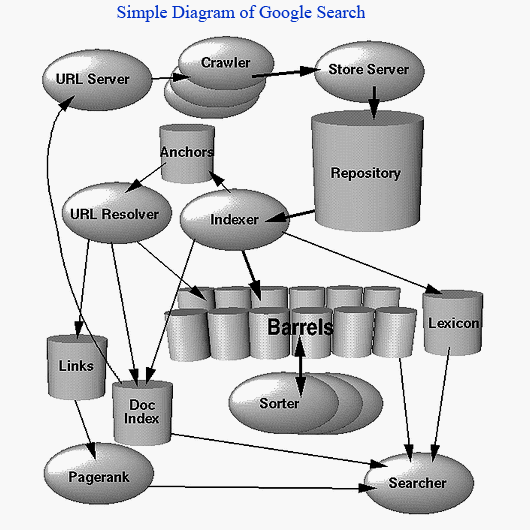This week I spoke with Barney Pell, CEO of Powerset; and Melek Pulatkonak, COO of hakia. In both (separate) conversations we discussed how the Semantic Web is getting very close. The Semantic Web as defined by Tim Berners-Lee is: “a universal platform for the exchange of data, information and knowledge.” I think Barney and Melek would agree, that the only thing preventing the Semantic Web so far has been an inefficient use of horsepower – or a lack of it.

Speed, Power and Getting There
Semantics is expressed meaning in language, code or “other” representations of information. My discussions with Barney and Melek revealed the fundamental differences in architecture and philosophy between hakia and Powerset. The index systems of the two companies are fundamentally different, as is their philosophy – but their goals and visions are remarkably similar. They are also different in the way they apply what I term horsepower to natural language search. Like the symbolism of Shelby vs. Ferrari,¬ñ it is possible for different approaches to achieve a desired result – given enough horsepower.
Hakia has built their search in-house, refining and sculpting the QDex indexing system (like an Enzo Ferrari). Their view is that processing power should be maximized with super efficiency, via fuzzy logic and advanced semantics. Powerset, on the other hand, utilizes basically the same inverted indexing system as Google Рbut backed by natural language and immensely powerful processing that essentially “overpowers” the long tail query (like the GT 500). This is a vast oversimplification, but the elements involved reveal the larger story.
Technology (horsepower), communication (language) and people make up the semantic Web. The Web has not been lacking “language”, but the adequate application of processing power. As Barney said: “Even five years ago we did not have the processing capability to even attempt this, but five years from now these answers will seem elementary.” Google’s system below, currently consumes massive horsepower with comparatively limited results – at least according to hakia and Powerset!

Diagram of Google’s inverted index and search (courtesy –changturtle)
Unbending Humans
Barney described the relationship between people and computers as people being “bent” around or adapted to technology in order to utilize it. With the advent of services like Facebook, programs and applications are beginning to ¬ìunderstand¬î each other. Everyone reading this has been ¬ìforced¬î by technology to conform to varied ¬ìbending events¬î, in order to use it. Barney explained this idea by calling Facebook and the iPhone true innovations approaching total ¬ìcommunity engagement.¬î Barney also said that ¬ìFacebook will become one of the primary communications platforms of the future.¬î Given this new perspective, I could not agree more because Facebook is one heck of a representation of information for a social network. Essentially, hakia, Powerset, Facebook and others are bending the machines to engage humans. And in a way, Facebook is the semantic Web in a microcosm – but in it’s infancy.
Semantics and Search?
Search is a critical part of our daily lives, but the interface has changed very little over the years. We define search as the act of typing in a query on Google and getting results. This is a type of search, but how many other kinds of “searches” do we perform? In an earlier article, Josh Catone wrote about Yahoo!’s contention that search will not determine the future of the Web. Josh rightly asked if Facebook and MySpace might be better positioned if “personalization” was to be the future of the Web.
Conclusion
I should make it clear that neither Barney nor Melek really consider themselves as “Google Killers”. Powerset and hakia are not in a race either against each other or to overtake Google, but they are on a quest for better Web communication and engagement. Both efforts emphasize the necessity for ¬ìthe system¬î to be able to universally understand and handle data without ambiguity. Viewing Facebook and others as functional repositories of semantic data is essential in seeing the long view. Whether we are talking about object oriented data, textual semantics or complex algorithms, the semantic Web is about making people ¬ìbend¬î less for technology.










